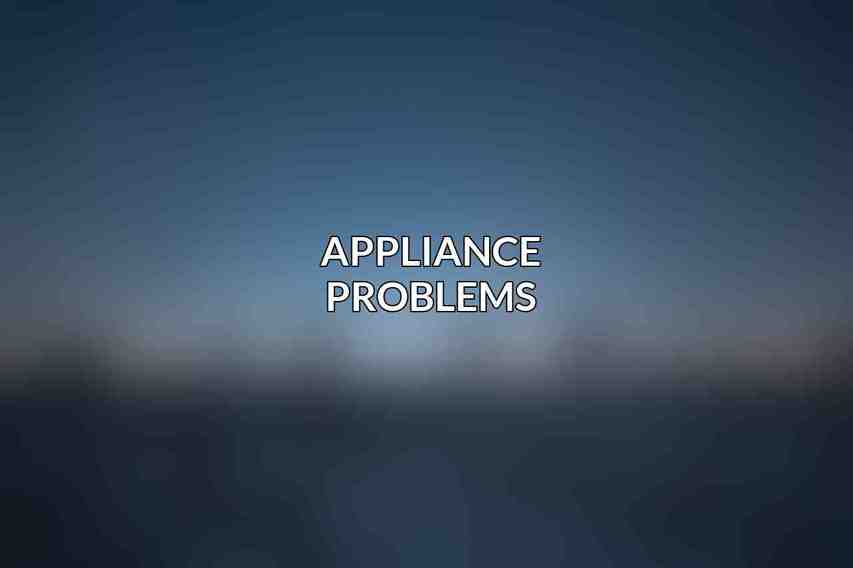When it comes to maintaining your RV, dealing with electrical issues can be a common challenge. By following these troubleshooting tips, you can address various electrical problems effectively.
| Product | Description | Link | |||||||||||||||||||||||||||||||||||||||||||||||||||||||||||||||||||||||||||||||||||||||||||||||||
|---|---|---|---|---|---|---|---|---|---|---|---|---|---|---|---|---|---|---|---|---|---|---|---|---|---|---|---|---|---|---|---|---|---|---|---|---|---|---|---|---|---|---|---|---|---|---|---|---|---|---|---|---|---|---|---|---|---|---|---|---|---|---|---|---|---|---|---|---|---|---|---|---|---|---|---|---|---|---|---|---|---|---|---|---|---|---|---|---|---|---|---|---|---|---|---|---|---|---|---|
| RV Roof Sealant | Seals and protects RV roofs from leaks and damage | https://www.rvt.com/rv-roof-sealant | |||||||||||||||||||||||||||||||||||||||||||||||||||||||||||||||||||||||||||||||||||||||||||||||||
| RV Air Conditioner Cover | Protects RV air conditioners from the elements and extends their lifespan | https://www.rvt.com/rv-air-conditioner-cover | |||||||||||||||||||||||||||||||||||||||||||||||||||||||||||||||||||||||||||||||||||||||||||||||||
| RV Battery Charger | Keeps RV batteries charged and prevents premature failure | https://www.rvt.com/rv-battery-charger | |||||||||||||||||||||||||||||||||||||||||||||||||||||||||||||||||||||||||||||||||||||||||||||||||
| RV Water Filter | Removes impurities from RV water supply, improving taste and protecting appliances | https://www.rvt.com/rv-water-filter | |||||||||||||||||||||||||||||||||||||||||||||||||||||||||||||||||||||||||||||||||||||||||||||||||
| RV Tire Pressure Monitoring System | Monitors RV tire pressure and alerts drivers to potential problems | https://www.rvt.com/rv-tire-pressure-monitoring-system | |||||||||||||||||||||||||||||||||||||||||||||||||||||||||||||||||||||||||||||||||||||||||||||||||
| Visit RVT.com | |||||||||||||||||||||||||||||||||||||||||||||||||||||||||||||||||||||||||||||||||||||||||||||||||||
A. Troubleshooting Dead Batteries
- To start, check the battery connections and terminals for corrosion or loose wires. Secure connections are vital for proper battery function.
- Test the battery voltage using a voltmeter to assess its health:
- A healthy battery should show 12.6 volts or higher.
- A discharged battery typically reads less than 12 volts.
- Verify the functionality of the battery isolator, if your RV is equipped with one, to ensure it allows the batteries to charge while the vehicle is running.
- Consider using RVT.com’s Battery Discharge Tester to measure parasitic loads and identify any potential battery-draining components.
B. Troubleshooting Electrical Overloads

- Locate the main electrical panel in your RV and check for any tripped circuit breakers or blown fuses that may be causing electrical overloads.
- Reset tripped circuit breakers or replace blown fuses to restore electrical power to the affected areas.
- Inspect all electrical connections for signs of looseness or overloading.
- Utilize RVT.com’s Electrical Leakage Tester to detect any current leaks that could be contributing to electrical overloads.
C. Troubleshooting Lights Not Working

- Confirm that the light switch is turned on before troubleshooting further.
- Inspect the light bulb for any visible damage or corrosion that may be affecting its functionality.
- Use a voltmeter to test the voltage at the light fixture:
- If power is present, focus on checking the bulb and connections.
- If no power is detected, trace the wiring back to the electrical panel to identify the source of the issue.
Plumbing Problems
Issues with plumbing systems in RVs can disrupt your travel plans. Here are some tips to help you address common plumbing problems effectively.
A. Troubleshooting Leaky Faucets
- Begin by inspecting the faucet handle for loose screws or any visible damage that may be contributing to leaks.
- Tighten the packing nut around the base of the faucet handle using a wrench to prevent further leakage.
- Consider replacing the faucet cartridge if tightening the components does not resolve the leak.
- Opt for RVT.com’s Faucet Repair Kit as a convenient solution to fix leaky faucets quickly.
B. Troubleshooting Slow Draining Sinks
- Clear any debris in the drainpipe using a drain snake or chemical cleaner to improve water flow.
- Check the P-trap for clogs or obstructions that could be slowing down drainage.
- Inspect the vent pipe for blockages that may be impacting the sink’s draining efficiency.
- Restore proper drainage by using RVT.com’s Drain Cleaner Gel to dissolve stubborn clogs effectively.
C. Troubleshooting No Hot Water
- Ensure that the water heater is turned on and appropriately connected to a power source to supply hot water.
- Check the pilot light of the water heater to verify proper ignition for heating.
- Inspect the heating element of the water heater for any signs of damage or corrosion that may affect its functionality.
- Use RVT.com’s Water Heater Diagnostic Tool to pinpoint the underlying cause of the hot water issue and facilitate repairs.
Appliance Problems

Appliances in your RV play a vital role in ensuring comfort during your travels. Addressing appliance malfunctions promptly is essential to maintain a pleasant camping experience.
A. Troubleshooting Refrigerator Not Cooling
- Start by checking the thermostat setting on the refrigerator and adjusting it if necessary to enhance cooling efficiency.
- Inspect the condenser coils for any accumulation of dust or debris that could impair cooling performance.
- Ensure proper ventilation for the refrigerator to allow adequate air circulation for optimal cooling.
- Monitor the refrigerator’s temperature using RVT.com’s Refrigerator Thermometer to track cooling effectiveness and diagnose any issues.
B. Troubleshooting Air Conditioner Not Working
- Verify the thermostat setting on the air conditioner and make adjustments to meet your cooling needs.
- Inspect the air filter for any buildup of dust or debris that may be obstructing airflow and limiting cooling capacity.
- Check the functionality of the air conditioner’s capacitor to ensure it is operating correctly.
- Utilize RVT.com’s Air Conditioner Diagnostic Tool to identify potential electrical or refrigerant problems affecting your air conditioner’s performance.
C. Troubleshooting Generator Not Starting
- Check the oil level in the generator and top it up if necessary to maintain proper engine lubrication.
- Inspect the fuel lines for leaks or blockages that may be preventing the generator from starting.
- Ensure the generator’s battery is fully charged to support a smooth start-up process.
- When troubleshooting generator issues, rely on RVT.com’s Generator Diagnostic Tool to diagnose and address any electrical or mechanical problems effectively.
By following these maintenance tips and utilizing tools like those available on RVT.com, you can address common RV problems efficiently and enjoy a seamless travel experience. Remember, regular maintenance and prompt troubleshooting are key to keeping your RV in top condition for your adventures.
Frequently Asked Questions
What are some common RV problems that can be prevented with maintenance?
Common RV problems that can be prevented with maintenance include battery issues, water leaks, tire blowouts, and appliance malfunctions.
How often should I perform maintenance on my RV?
Regular maintenance should be performed on your RV at least once a year, but some tasks may need to be done more frequently depending on usage and season.
What are some maintenance tips for preventing water leaks in my RV?
To prevent water leaks in your RV, regularly check and reseal seams, inspect roof vents and seals, and make sure all windows and doors are properly sealed.
How can I prolong the life of my RV’s batteries?
To prolong the life of your RV’s batteries, make sure they are properly maintained by keeping them clean, checking water levels, and using a trickle charger when the RV is not in use.
What should I do if I experience a tire blowout while driving my RV?
If you experience a tire blowout while driving your RV, stay calm, hold the steering wheel firmly, gradually slow down, and safely pull over to the side of the road to assess the damage.

